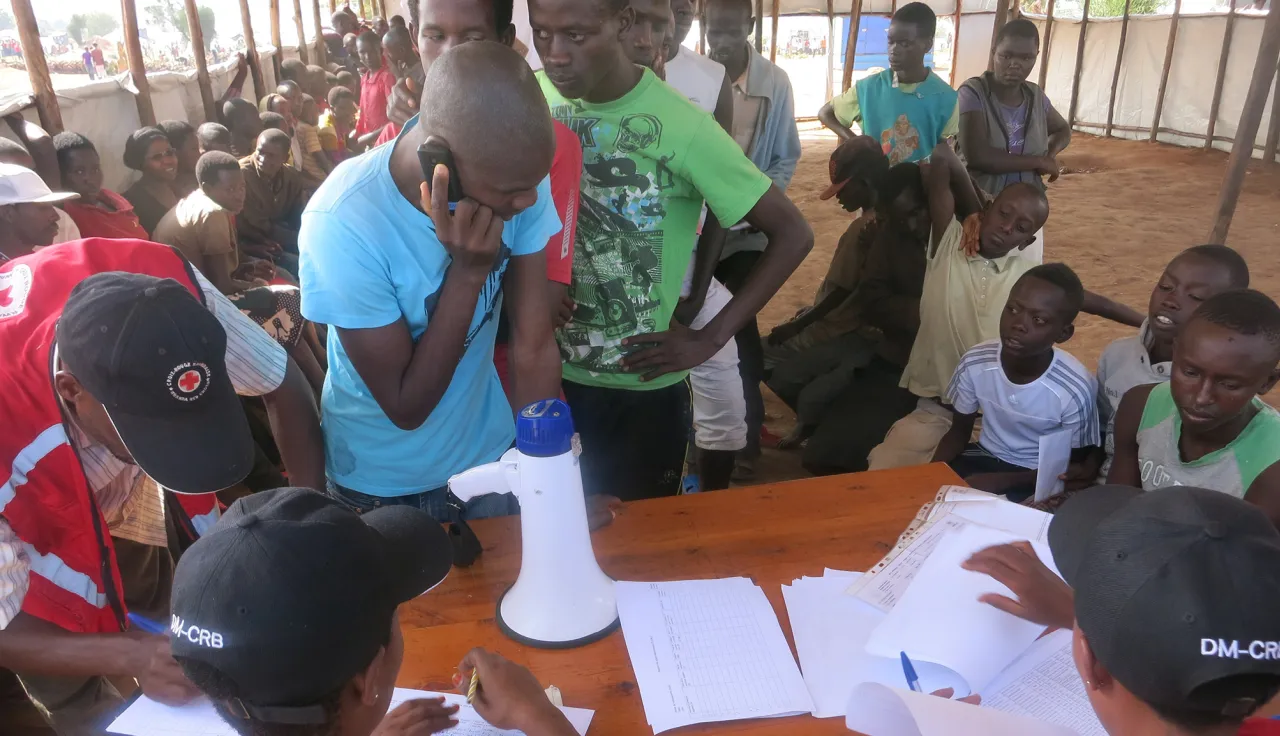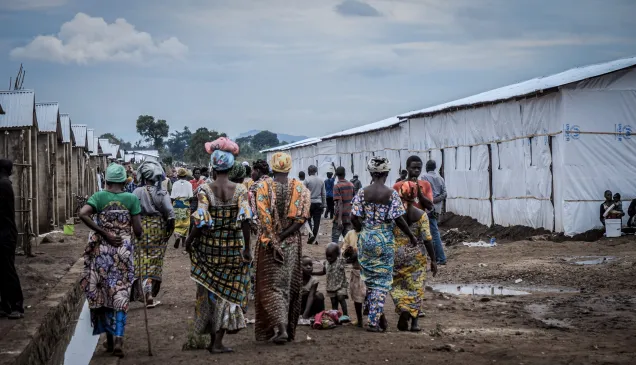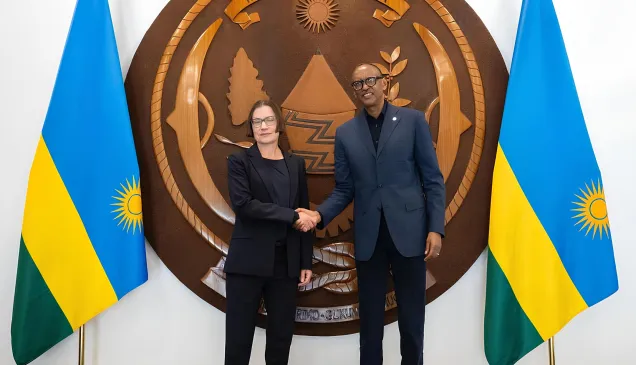Rwanda / Burundi: Free phone calls help refugees stay in touch

A surge in arrivals of Burundian refugees in reception centres near the Rwanda-Burundi border prompted the Rwandan government in April to open a new refugee camp in Mahama, Eastern Province. A major concern for the refugees is keeping in touch with friends and loved ones left behind.
By the end of June, the total number of refugees fleeing from pre-election tensions in Burundi had reached tens of thousands. While the Rwandan government has declared prima facie (automatic) refugee status for those fleeing from Burundi, an undetermined number of refugees headed straight to urban areas, such that the authorities have started to register these urban refugees at the village level.
Since the beginning of the current influx, the ICRC and the Rwanda Red Cross Society (RRCS) have been offering the refugees restoring family links services, mainly through phone calls. To date, in excess of 13,000 phone calls have been made, more than 8,551 resulting in restored family contacts and/or exchange of family news. One of the key challenges facing humanitarian organizations is protection for the high number of unaccompanied and separated children. To date, some 945 unaccompanied minors have been registered.
In offering phone call services, the ICRC and the RRCS realized that many refugees – as many as a thousand – have their own phones but cannot use them for a variety of reasons, including no access to the Rwandan mobile network, no airtime and no means of charging their phones.
Enabling refugees to use their phones
Responding to these needs, the ICRC has developed a project aimed at enabling Burundian refugees to get in touch with their loved ones by using their own phones. MTN Rwanda, a local telecommunications company, has lent support to the project with the donation of up to 10,000 SIM cards, each pre-loaded with 500 RWF (Rwandan francs) of airtime. The company is also providing personnel to register and activate the SIM cards individually. In addition, extra airtime – a one-time top-up of 1,000 RWF to each SIM card – is being purchased by the ICRC.
A lack of electricity is a major problem within and close to the refugee camp and particularly hinders phone use. To enable the refugees to charge their own phones, the ICRC has set up a small project, 'Mobile Solar Kiosk' (which allows the charging of 20 phones at a time), to demonstrate a more sustainable, practical alternative that could also serve as an example in other situations.

Mahama, Rwanda. Beneficiaries line up behind an ICRC staff member for the free phone charging service. CC BY-NC-ND / ICRC / Emmanuel Kagimbura
Priority is given to unaccompanied children who wish to talk to family members in Burundi, and to parents looking for their children. Those benefiting from the free phone charging service testify that it is helping them to ensure food security for their families who otherwise are forced to sell part of their received assistance in relation to mobile phone expenses, whether phone charging or purchase of SIM cards.
An average of 50 to 60 phones are being charged by this free service every day. To date, about 950 SIM cards have been distributed and more than 650 refugees have benefited from the free phone charging service.

Mahama, Rwanda. An ICRC tracing field officer takes details from an unaccompanied child so that the search for his family can begin. CC BY-NC-ND / ICRC / Emmanuel Kagimbura
For more information on our work in Rwanda and Burundi to help reunite families:
Restoring Family Links in Rwanda
Restoring Family Links in Burundi



